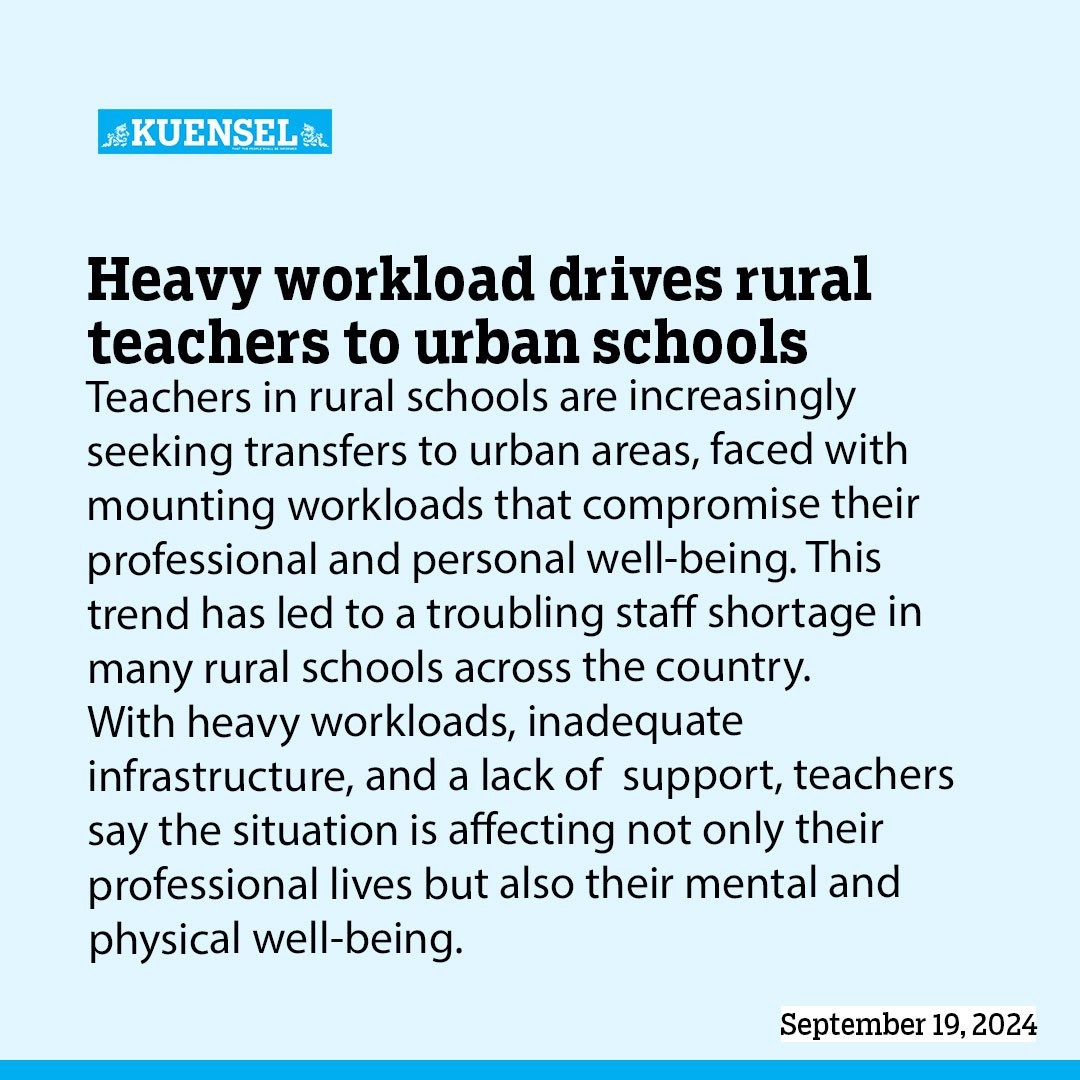KP Sharma
Teachers in rural schools are increasingly seeking transfers to urban areas, faced with mounting workloads that compromise their professional and personal well-being. This trend has led to a troubling staff shortage in many rural schools across the country.
With heavy workloads, inadequate infrastructure, and a lack of support, teachers say the situation is affecting not only their professional lives but also their mental and physical well-being.
As a result, a growing number of teachers are opting for the relatively favourable conditions found in urban areas such as Thimphu and Paro.
“We have never been able to meet the required number of teachers to replace those leaving,” a chief dzongkhag education officer (CDEO) said.
This shortage has forced numerous dzongkhags to rely on contract teachers, who often lack proper training, raising concerns about the quality of education in these schools.
The situation is particularly dire in remote schools, where contract teachers are frequently deployed. “We usually receive one or two replacements, but filling all vacant positions remains our biggest challenge,” the CDEO said.
A teacher transferred from Trashigang to Thimphu last year highlighted the differences between working in rural and urban schools. “I had been in the eastern dzongkhag for a long time and I moved here because my children needed better exposure and a better learning environment,” the teacher said.
He added that the workload in rural areas is much heavier. “The workload is not only lighter in urban schools, there are also better opportunities for professional growth,” he said. “I have attended workshops and programmes here that I never had access to during my decade-long service in the east,” he said.
The lack of basic facilities, such as housing is another issue for rural teachers. A primary school principal described the situation as critical, stating that his school has no government quarters.
“When fresh graduates are placed here, they expect basic facilities like housing. But when these are missing, it becomes very hard to attract or retain teachers,” he said.
In one recent case, two contract teachers had to live in temporary huts, with a single room serving as both kitchen and living space.
The physical remoteness of many rural schools adds to the burden. Teachers often have to travel long distances on foot or by vehicle over rough terrain, and the lack of basic services such as healthcare exacerbates the difficulties.
“When there are workshops in the dzongkhag, only those with cars can attend because it is almost impossible to get a ride. If we want to go, we have to hire a vehicle, which is expensive,” a teacher in Samtse, Namgay Dorji, said.
Further compounding their frustration is the recent removal of hardship allowances, previously granted to teachers in difficult-to-reach areas.
“Even though the amount was small, it recognised the extra challenges they face,” said a local leader from Trashiyangtse. “Now that it has gone, there is no incentive to stay in rural schools, which only worsens the problem.”


